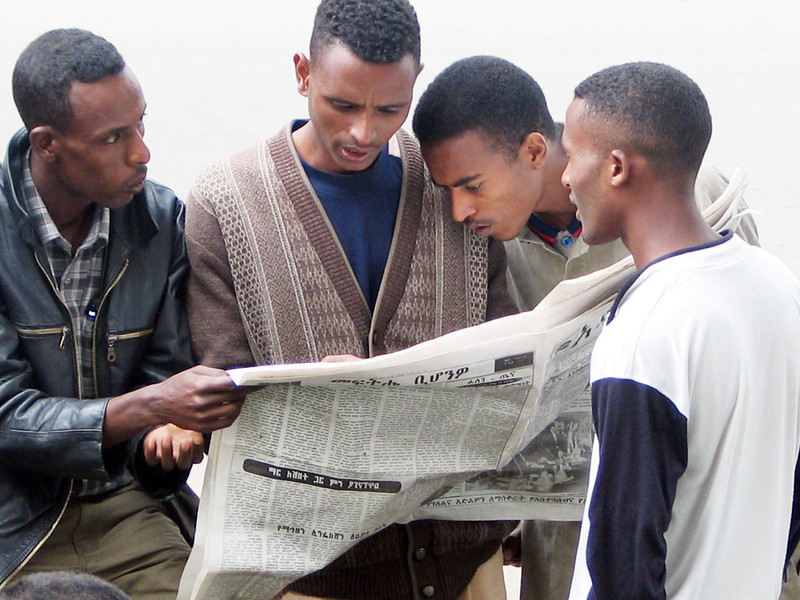We are excited to announce that Brink is now part of Africa Practice. Learn more
On 22 September, Madagascar’s High Constitutional Court (HCC) officially confirmed the candidacy of 13 individuals for the upcoming presidential elections, scheduled for 9 November, with a possible run-off on 20 December. Among the contenders is the incumbent, Andry Rajoelina, who is seeking re-election. He will be competing against two former presidents, Marc Ravalomanana and Hery Rajaonarimampianina, as well as several former ministers.
Poll pressure
The pre-electoral period has been marked by controversy. Firstly, Rajoelina’s eligibility for a second term has been a major point of contention within the country. This controversy stems from his acquisition of French nationality in 2014, which, according to Malagasy law, leads to the automatic loss of Malagasy citizenship, ostensibly rendering him ineligible for elected office. The High Constitutional Court (HCC), was summoned to adjudicate on this matter by four opposition parties, but ultimately decided it was not competent to make a ruling on his nationality case, thus permitting him to seek re-election.
Secondly, the Malagasy constitution provides that the President must resign two months before the first round of elections. Herimanana Razafiahefa, President of the Senate and the designated legal successor, was initially in line to assume the interim presidency. However, on 8 September, Razafiahefa cited personal reasons for his unsuitability. This decision paved the way for the appointment of a collective government of ministers led by Prime Minister Ntsay, effectively consolidating Rajoelina’s continued influence over institutions in the run-up to and during the election.
Finally, amidst recent military coups in Africa, growing apprehensions surround the armed forces’ role in the lead-up to elections. Just before his resignation, Rajoelina appointed two generals to crucial positions, including Chief of Staff of the Presidency, effectively increasing the military’s influence beyond its customary level. Opposition candidates allege that the military has wielded influence over the President of the Senate’s decision to step down from the interim position. The interim president, Prime Minister Ntsay, will find himself with limited authority to remove newly appointed military officials, thus further solidifying the armed forces’ control.
A constitutional coup?
The unfolding of these events, which the opposition has labelled a “constitutional coup,” is, however, unlikely to be legally classified as such. Razafiahefa’s voluntary withdrawal enabled the transfer of the interim presidency to a council of government ministers, a provision permitted by the Malagasy constitution. Nevertheless, opposition leaders have raised concerns about whether pressure was applied to Razafiahefa to step down, which, if proven, could form the basis for characterising the decision as an institutional “coup.”
A coalition comprising 11 opposition candidates has been formed with the intent of challenging Rajoelina’s candidacy. On 22 September, they were granted an audience by the HCC and also urged for a more robust international condemnation of Rajoelina’s actions. A joint declaration, signed by delegates from the European Union (EU), La Francophonie and ambassadors representing Western countries and Japan, raised doubts about the integrity of the electoral process, without directly condemning Rajoelina’s manoeuvers. The declaration also emphasised the need for a transparent electoral process and the protection of the right to peaceful demonstration.
Tensions are expected to escalate as the November 2023 presidential election approaches, fueled by mounting ethnic and regional divisions – a recurring characteristic of Malagasy politics. The country’s armed forces are on heightened alert, and security measures in the capital, Antananarivo, have been increased. In the provinces, state representatives have reportedly been instructed to laud Andry Rajoelina’s achievements, as he faces scrutiny over the lack of tangible results during his first term. Fierce electoral competition is anticipated in the coastal region, which is outside Rajoelina’s traditional political stronghold.
Grim future ahead
The breakdown of dialogue between the opposition and the HCC, and the retention of control over state institutions by key allies of Rajoelina, raises doubts about the fairness of the electoral process in Madagascar. The country has a history of electoral crises, with the most recent one occurring in 2009, resulting in a coup that brought Rajoelina to power and led to fatal clashes between protesters and security forces.
Reports of Russian interference emerged during the 2019 presidential election, and Madagascar’s central position in the Wagner Group’s business networks in Africa adds to concerns. One of the members of the opponents’ coalition, Siteny Randrianasoloniako, has established close connections with Russia, raising apprehensions about potential Russian influence in the current electoral process. Additionally, uncertainties linger concerning funding for the polls, with the Independent National Electoral Commission revealing a shortfall of USD 2 to 3 million necessary for financing the vote, despite substantial international financial support being in existence.
Madagascar remains mired in profound economic and social difficulties, which could further deteriorate if a political crisis ensues. Widespread poverty and rampant corruption have impeded developmental initiatives, despite the nation’s considerable untapped resources in mining and agriculture. The revision of the Mining Code marked a critical reform during Rajoelina’s term, but discontent among mining stakeholders arose due to their exclusion from the drafting process. Irrespective of the election results, the next president will bear the weighty responsibility of advancing progress and development in light of a declining GDP and a nation in urgent need of substantial transformation.
About the authors
Antoine Drogoul, a Senior Consultant at Africa Practice, is stationed in Dakar, where he specialises in Francophone Africa. His primary areas of expertise encompass geopolitical matters and the mining sector. He can be reached at [email protected].
Alix Bouheddi is an Associate Consultant at Africa Practice, with a particular focus on energy, mining and geopolitical issues. Alix can be contacted at [email protected].
Image source: Ludovic Marin/AFP
Proud to be BCorp. We are part of the global movement for an inclusive, equitable, and regenerative economic system. Learn more



